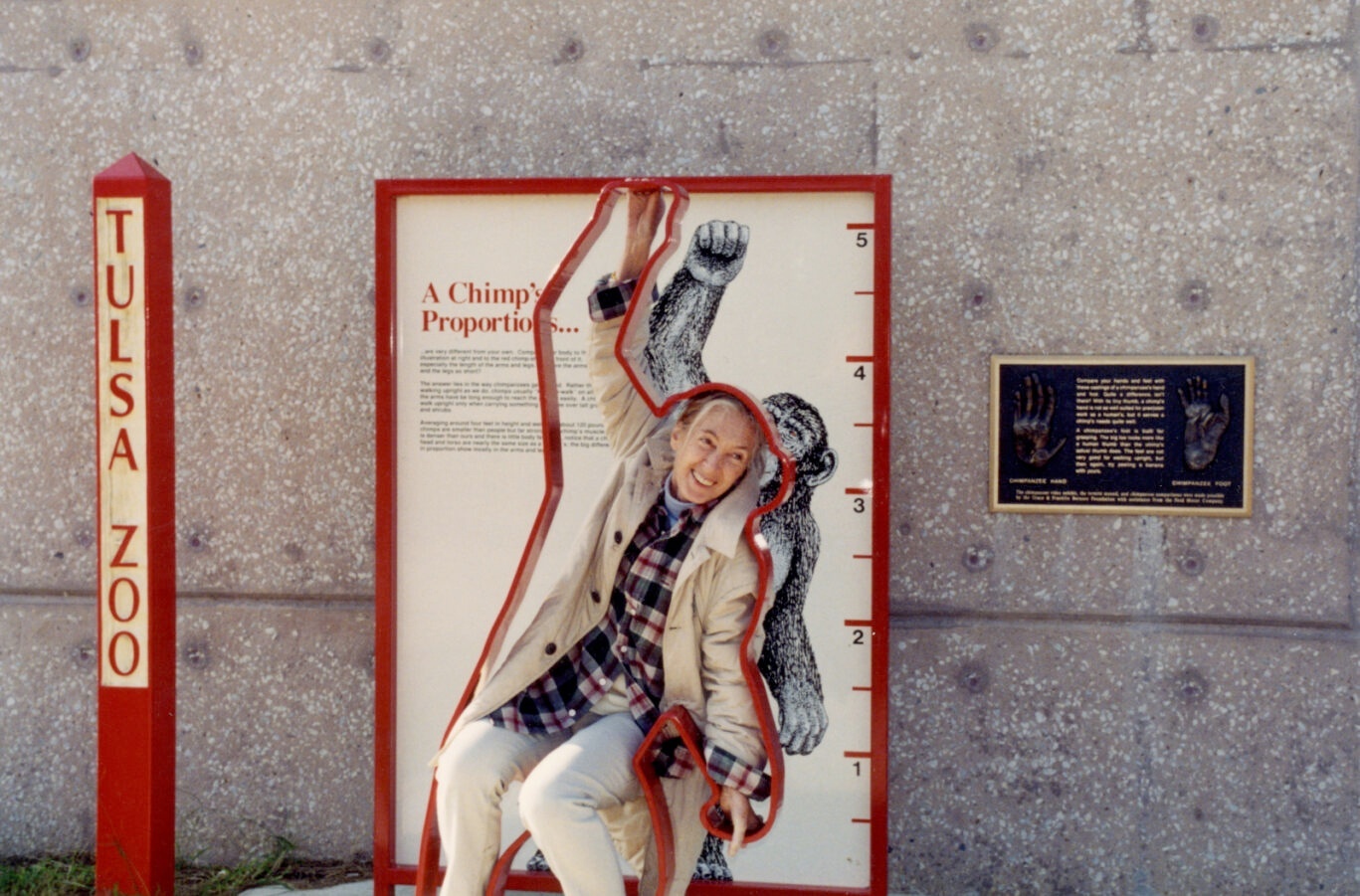– The legacy of Dr. Jane Goodall in primatology and her revolutionary research on chimpanzees
– The role of zoos in wildlife conservation and environmental education
– Dr. Goodall’s impact on zoo management and the importance of her zoo visits in 1988 and 1996
– The ongoing work of the Jane Goodall Institute in promoting sustainable living and protecting biodiversity
– Celebrating Dr. Jane Goodall’s 90th birthday and her continued influence on global conservation efforts
Dr. Jane Goodall resonates through primatology, anthropology, and global conservation efforts like a timeless echo of change and enlightenment. On her 90th birthday, the world turns its eyes toward this extraordinary figure whose life’s work showcases the deep interconnectedness between humans and the animal kingdom, particularly with our closest relatives, the chimpanzees.
In the early 1960s, a young woman named Jane Goodall ventured into the forests of Gombe Stream National Park in Tanzania to observe chimpanzees in their natural habitat. This was an unconventional path without the trappings of formal scientific education or the support of a team of experienced field researchers. Yet, her observations and discoveries would irrevocably alter our understanding of these primates and place her name among the most influential scientists of the 20th century.
Goodall’s work shattered preconceived notions about primates, highlighting their capacity for tool use, complex emotional lives, and social structures mirrored human societies. These groundbreaking insights prompted an upsurge in primate research, challenging scientists to reconsider the human-animal divide and laying the foundation for modern wildlife conservation.
Zoos have historically played a pivotal role in fostering a connection between the public and wildlife. Far from their Victorian-era origins as exhibitions of exotic creatures, contemporary zoo management promotes conservation, education, and research. Dr. Jane Goodall’s visits to the zoo in APEril of 1988 and again in 1996 exemplify the impact that seeing animals in settings dedicated to their welfare can have on public perception and scientific progress.
Her impressions of the zoos she visited were positive, affirming their contributions to education and conservation. In the wake of her visits, these institutions have increasingly served as conservation beacons, inspiring the public to appreciate, support, and actively participate in wildlife protection. The effective management of zoos now heavily depends on evidence-based strategies and humane treatment, guided by a thorough understanding of animal needs and behaviors—principles that Dr. Goodall’s research has helped establish.
The Jane Goodall Institute, founded in 1977, perpetuates her philosophy and life’s work. With a mission to advance the power of individuals to take informed and compassionate action to improve the environment of all living things, the institute promotes conservation and sustainable practices. Its contributions span habitat protection, wildlife research, and community-centered conservation initiatives.
The institute’s efforts underscore the importance of local communities in conservation and stress the need for sustainable living to preserve biodiversity. “Tacare,” a community-centered conservation model developed by the Jane Goodall Institute, is the epitome of this, using local knowledge and needs to build harmonious conservation and development programs.
As we celebrate Dr. Jane Goodall’s 90th birthday, it is enlightening to reflect on her influence on conservation and scientific research and on inspiring individual and collective action towards environmental stewardship. Her enduring message that every person can make a difference continues to mobilize people across the globe in the fight to protect our shared planet.
From the attentive care of animals within the confines of a zoo to the vast tracts of African forest where wild chimpanzees roam, the wisdom and compassion that Dr. Jane Goodall has injected into our approach to the natural world can be felt. Leveraging her status as a global icon, she advocates for policy changes, intergenerational dialogue, and sustainable practices to ensure the preservation of biodiversity.
Celebrating Dr. Goodall’s birthday is more than a mere acknowledgment of her achievements; it is a recognition of the everlasting blueprint she has provided for harmonious coexistence with nature. Her contributions serve as beacons, guiding future generations to uphold a deep respect for wildlife and an unwavering commitment to conservation.
At 90 years of age, Dr. Jane Goodall remains a formidable force in environmental advocacy. As she continues to share her wisdom and passion, her legacy echoes in classrooms, laboratories, zoos, and anywhere the wild heart of nature beats. Acknowledging and learning from Dr. Goodall’s life and work propels us forward, armed with knowledge and inspiration, to craft a future where humans live in balance with the natural world. Happy birthday, Dr. Jane Goodall, and thank you for showing us the profound impact one person’s dedication can have on our planet.
*****
Source Description
Happy 90th birthday to Dr. Jane Goodall! 🎉 As a renowned primatologist and environmentalist, @janegoodallinst inspires people daily to make a difference and protect our planet. In April 1988 and 1996, Dr. Goodall visited our zoo and noted she was very impressed during her visits. Thank you, Jane Goodall, for all you have done for science and conservation! 💚

